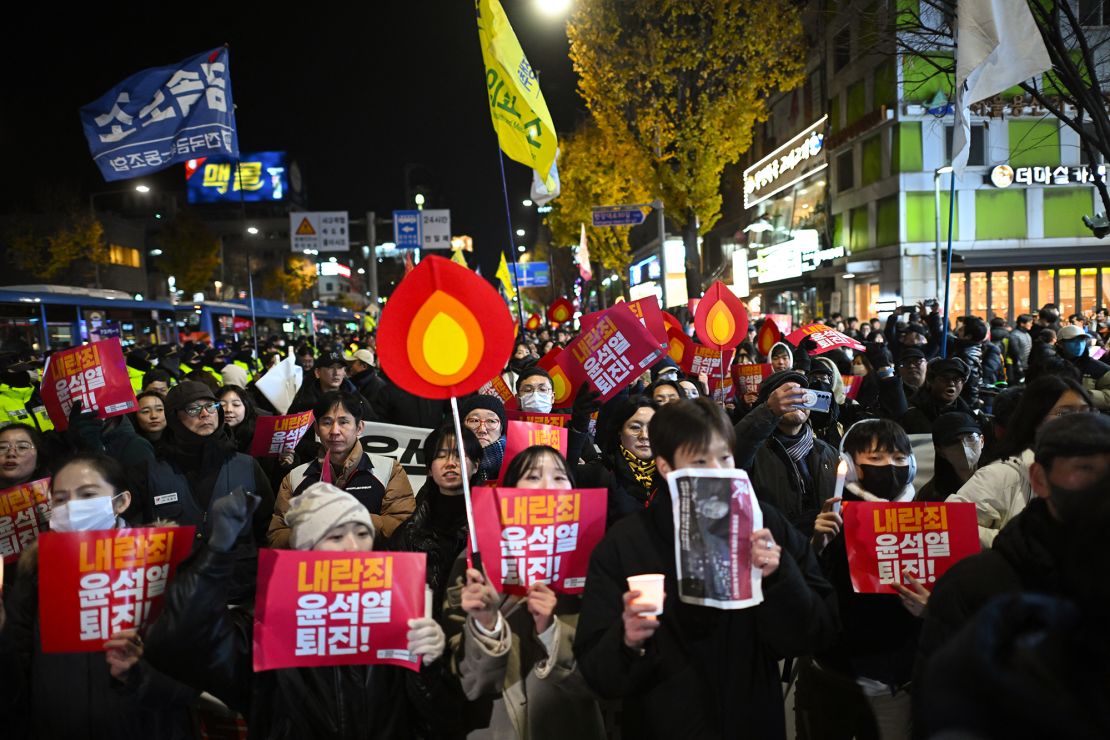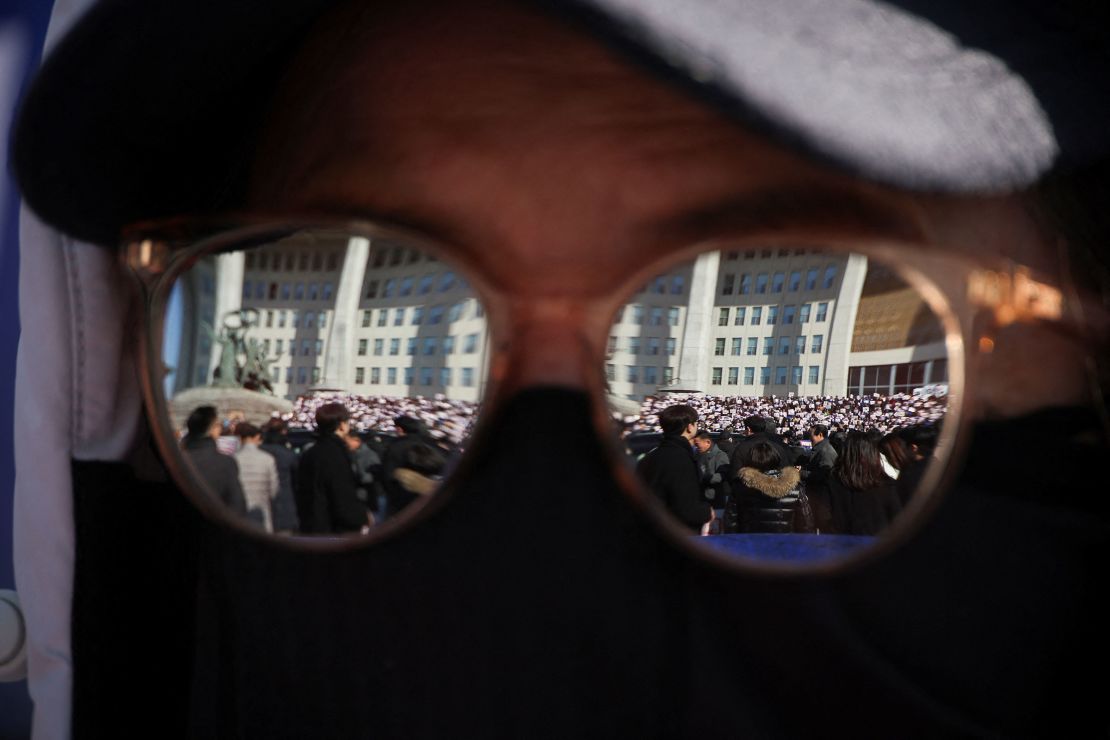President Yoon Suk Yeol announced the decree – which only lasted a few hours before being struck down by lawmakers who forced their way past soldiers into parliament – in an extraordinary late-night television address late Tuesday night.
“That night, after I got off work, I was lying in bed with my wife in our home … when my wife suddenly showed me a YouTube video and said, ‘The president is declaring martial law,’” Lee Jae-myung, leader of the liberal Democratic Party (DP), told CNN.

“I replied, ‘That’s a deepfake. It has to be a deepfake. There’s no way that’s real,’” he said, referring to the term for fake audio and video created with artificial intelligence.
“But when I watched the video, the president was indeed declaring martial law – yet I thought to myself, ‘This is fabricated, it’s fake.’”
Lee was Yoon’s main rival in the 2022 presidential election, and is himself embroiled in multiple legal difficulties after being indicted on criminal charges.
The news was especially stunning given South Korea has spent the last four decades shaping itself into a vibrant democracy with frequent protests and protected freedoms – a hard-won victory after a long history of bloody authoritarian rule.
Within an hour of Yoon announcing martial law, Lee rushed to the parliament in Seoul, urging other party members in their Telegram group “to gather at the National Assembly as quickly as possible, emphasizing that we must pass the resolution to lift martial law,” he said.
However, as he arrived at the National Assembly, he saw members being prevented from entering as troops began blockading the main building and military helicopters circled overhead. So he climbed over a fence to enter the building – live-streaming the whole time, in a viral video that has since been viewed tens of millions of times on the social platform X.
A total of 180 lawmakers – mostly opposition, but including multiple members of Yoon’s own party – ultimately made it inside parliament to vote down the decree, pushing Yoon to lift martial law early Wednesday.
Yoon has not issued any public statements since then.

Pressure builds on Yoon
Pressure on the president has mounted in the days since, with protesters and opposition figures demanding his impeachment – and support wavering even within Yoon’s own party and military.
National police have launched an investigation into Yoon and other top officials on treason allegations. Meanwhile, Lee’s Democratic Party said it had filed charges against Yoon and other officials for insurrection.
The opposition also introduced impeachment measures in Parliament, which could vote on the issue as soon as Saturday. If it reaches the two-thirds majority to pass, it will then go to one of the country’s highest courts for further approval.
However, Yoon’s ruling People Power Party is working to block the move.
But party leader Han Dong-hoon said in a briefing Thursday he would oppose the impeachment because it could cause “unprepared chaos,” though he emphasized he was “not defending President Yoon’s unconstitutional martial law.”
A number of government figures have resigned — including the defense minister, who came under heavy criticism for helping spearhead the martial law. Meanwhile senior figures within the military have either distanced themselves from the martial law decree or indicated they were themselves caught unaware.
The vice defense minister Kim Seon-ho, stepping into the role in the interim, said he didn’t know about the martial law order until he read media reports. He apologized to the public on Thursday, saying the former defense minister had ordered the deployment of troops into parliament without warning —though they were not given live rounds.
The head of the country’s martial law command, Park An-su, told lawmakers that he did not write the decree announced by Yoon and was not aware of troop movements during those eventful six hours.
He said the former defense minister had directly delivered the decree and claimed it had been legally reviewed, and did not know if it was the minister of Yoon who wrote the proclamation.

Sleeping in parliament
Meanwhile, many lawmakers haven’t dared leave the parliament building – including opposition member Kang Sun-woo, who has been there since Tuesday night.
“We are concerned and afraid that President Yoon might make another declaration of martial law at any time … since the last martial law failed,” she told CNN on Thursday. “That’s why we are staying here and we’re not going home … We are sleeping, eating, and some colleagues are washing here at the National Assembly.”
Questions now swirl around the future of Yoon’s presidency, his party’s position in government, and how this could reshape the country’s political landscape of a major Asian economy and key US regional ally.
Lee, a human rights lawyer turned former provincial governor, only lost the 2022 election by a razor-thin margin – but neither candidate was particularly popular. Both men were mired in scandal, and have been dogged by legal cases and allegations in the years since.
Lee now faces several trials including for bribery and charges related to a $1 billion property development scandal, Reuters reported. In November, he was indicted for personal misuse of public funds, and separately convicted and sentenced for violating election law.
Lee has denied the charges and said he would appeal – claiming to CNN on Thursday he had been arrested “without any evidence or basis” in an act of “political revenge.”
Source: CNN




















